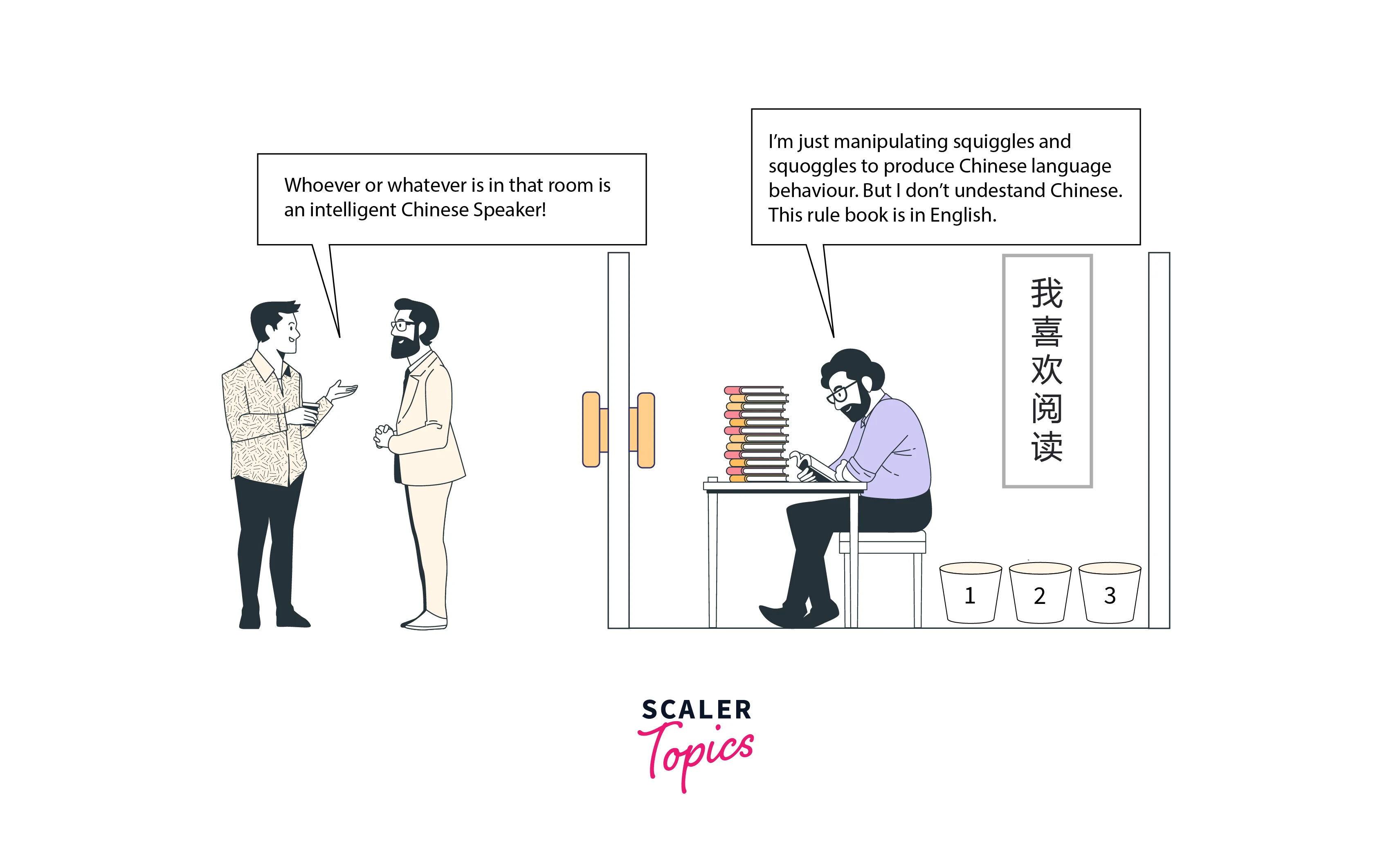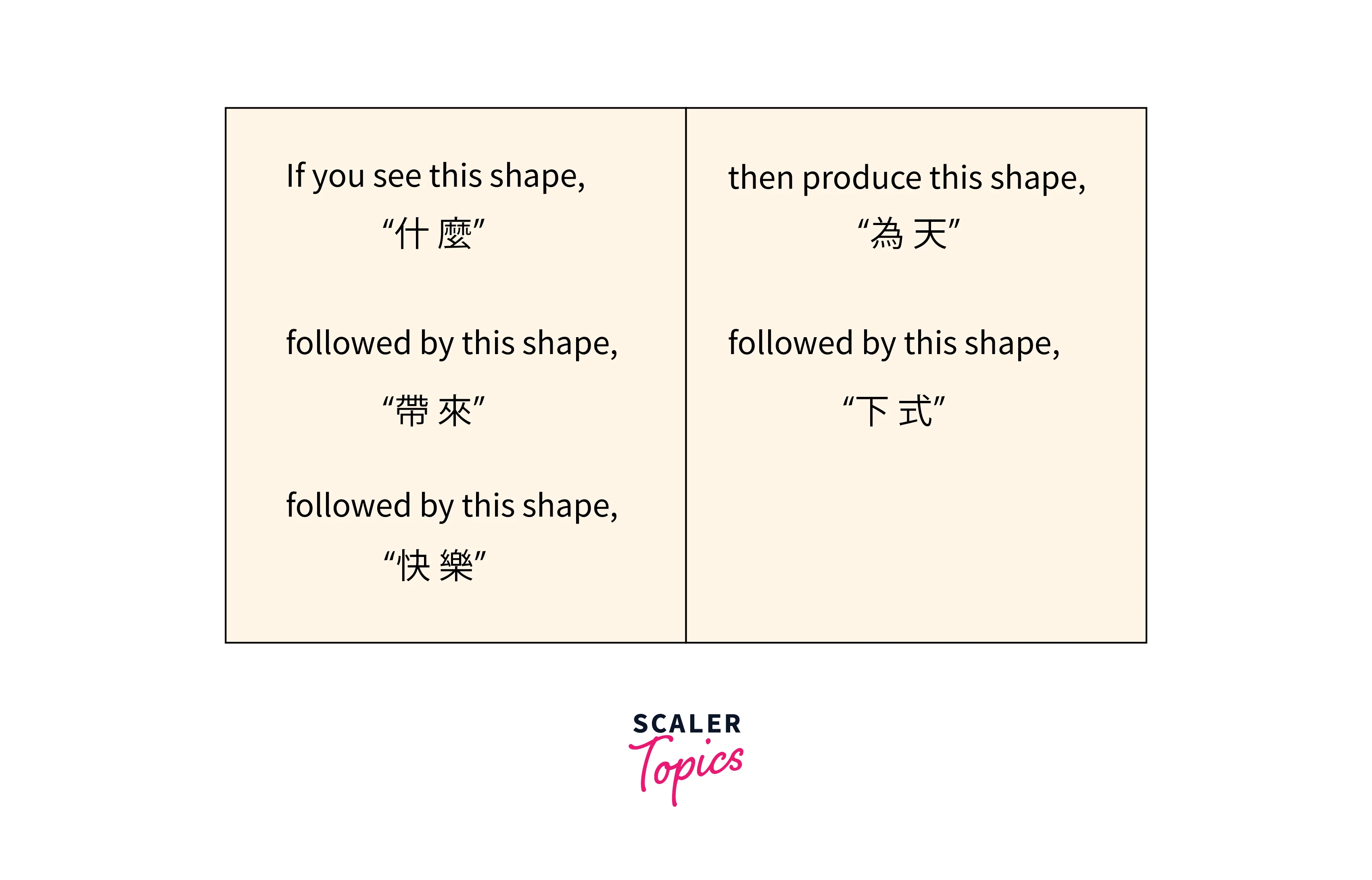The Chinese Room Argument
Overview
The Chinese Room Argument is a famous philosophical thought experiment proposed by philosopher John Searle in 1980. The argument seeks to demonstrate that artificial intelligence, as it is currently understood, is not capable of genuine understanding or consciousness. It has been the subject of intense debate and discussion in both philosophical and scientific circles.
Introduction
For decades, both philosophy and science have debated whether or not computers can think, comprehend language, or experience awareness. The 1980 Chinese Room Argument by philosopher John Searle has made a significant impact on this discussion. The argument is a thought experiment that aims to show that, as currently conceived, artificial intelligence is not capable of true knowledge or awareness. Since its proposal, it has provoked a great deal of discussion and criticism, and as AI technology advances today, it remains relevant.
A summary of the Chinese Room Argument, its history, and its current applicability will be given in this article. It will look at some of the argument's weaknesses as well as the moral and philosophical ramifications of building artificial intelligence-impersonating machines. The Chinese Room Argument ultimately asks us to reflect on the nature of human intelligence and the limitations of artificial intelligence. It does this by challenging our beliefs about what it means to fully understand language and have consciousness.
Background of Chinese Room Argument
`John Searle's Chinese Room Argument was first presented in his paper "Minds, Brains, and Programs" in 1980. The argument is a thought experiment that seeks to refute the idea that a computer program can truly understand language or have consciousness.
Searle asks us to imagine a scenario in which a person is placed in a room with a large collection of Chinese symbols and a set of rules in English that tell them how to manipulate these symbols. The person has no knowledge of Chinese and cannot understand the symbols. However, by following the rules, they can produce responses to questions written in Chinese. To the outside observer, it appears that the person in the room understands Chinese. However, Searle argues that this is not the case. The person in the room is merely following a set of rules without any genuine understanding of the language.
What is the Chinese Room Argument in AI?
The Chinese Room Argument in AI is a philosophical thought experiment that was proposed by philosopher John Searle in 1980. The argument seeks to demonstrate that artificial intelligence, as it is currently understood, is not capable of genuine understanding or consciousness.
In the Chinese Room scenario, a person is placed in a room with a large collection of Chinese symbols and a set of rules in English that tell them how to manipulate these symbols. The person does not know Chinese` and cannot understand the symbols. However, by following the rules, they can produce responses to questions written in Chinese. To the outside observer, it appears that the person in the room understands Chinese. However, Searle argues that this is not the case. The person in the room is merely following a set of rules without any genuine understanding of the language.

The argument applies to AI because it suggests that computer programs, no matter how sophisticated they may be, are simply manipulating symbols according to a set of rules. They do not truly understand language or have consciousness. Searle argues that a computer program can only manipulate symbols according to a set of rules, and it cannot genuinely understand the meaning of those symbols.
Critics of the argument have pointed out that it assumes that understanding language requires more than just manipulating symbols. Some argue that if a computer program can manipulate symbols in the same way that a human does, it can be said to understand language. Additionally, the argument does not take into account the possibility of neural networks and other types of artificial intelligence that do not rely on symbolic manipulation.
However, the Chinese Room Argument continues to be relevant today as AI technology continues to develop. It raises important questions about the nature of intelligence and consciousness and the ethical and philosophical implications of creating machines that can mimic human intelligence. The argument challenges our assumptions about what it means to truly understand language and have consciousness and invites us to consider the limitations of artificial intelligence.
Criticism of the Chinese Room Argument
The Chinese Room Argument proposed by John Searle in 1980 has been the subject of intense debate and criticism in the years since its proposal. Some of the main criticisms of the argument are:
- The Chinese room argument assumes that understanding language requires more than just manipulating symbols. Critics argue that if a computer program can manipulate symbols in the same way that a human does, it can be said to understand language.
- The argument is based on a faulty understanding of how AI systems work. Searle's argument assumes that AI systems are based purely on symbolic manipulation, whereas modern AI systems also use neural networks and other methods that do not rely on symbolic manipulation.
- The argument is a flawed thought experiment. Critics argue that the scenario presented in the Chinese Room Argument is not realistic, as it assumes that the person in the room does not know Chinese at all. In reality, most people who learn a language do so by first learning the rules of grammar and syntax.
- It fails to take into account the potential for future advancements in AI technology. Searle's argument assumes that AI technology will always be limited to symbolic manipulation, whereas it is possible that future `AI systems could be capable of genuine understanding and consciousness.
- The Chinese room argument is based on a limited understanding of consciousness. Critics argue that Searle's definition of consciousness is too narrow, as it is based solely on the ability to understand language.
Despite these criticisms, the Chinese Room Argument continues to be a significant contribution to the debate over artificial intelligence and the nature of consciousness. It challenges our assumptions about what it means to truly understand language and have consciousness, and it invites us to consider the limitations of artificial intelligence.
Drawbacks of the Chinese Room Argument
While the Chinese Room Argument has been influential in the debate over artificial intelligence, it also has some drawbacks that should be considered. Some of the main drawbacks of the argument include:
- The Chinese room argument is based on a limited understanding of intelligence. The Chinese Room Argument assumes that intelligence and understanding are purely based on the manipulation of symbols and rules. However, human intelligence and understanding involve much more than just following rules.
- The argument does not take into account the potential for hybrid AI systems. The Chinese Room Argument assumes that AI systems are either purely symbolic or purely neural. However, it is possible that future AI systems could combine both symbolic and neural elements.
- The Chinese room argument is focused solely on language understanding. The Chinese Room Argument is primarily concerned with whether AI systems can truly understand language. However, understanding language is just one aspect of intelligence and consciousness.
- The argument does not address the potential for emergent properties in AI systems. Emergent properties are properties that arise from the interactions of complex systems, and they are often difficult to predict. It is possible that future AI systems could exhibit emergent properties that are not currently understood.
- It assumes that consciousness is a binary property. The Chinese Room Argument assumes that an entity is either conscious or not conscious, with no middle ground. However, consciousness may be a continuum, with different levels of consciousness.
Why is the Chinese Room Argument Relevant Today
The Chinese Room Argument remains relevant today because it raises important questions about the nature of intelligence and consciousness and the ethical and philosophical implications of creating machines that can mimic human intelligence. As AI technology continues to advance and become more ubiquitous in our lives, it is important to consider the limitations of artificial intelligence and what it means for a machine to truly understand language or have consciousness.

The Chinese Room Argument challenges the assumption that AI systems can truly understand language or have consciousness. It suggests that even the most sophisticated AI systems are simply following rules and manipulating symbols, and they do not have a genuine understanding or consciousness. This has important implications for the development and use of AI systems, as it raises questions about the ethics of creating machines that can mimic human intelligence without having true consciousness.
Furthermore, the Chinese Room Argument invites us to consider the limitations of our own understanding of intelligence and consciousness. It challenges us to think more deeply about what it means to truly understand language or have consciousness, and whether these are properties that can be replicated in a machine.
Overall, the Chinese Room Argument remains relevant today because it raises important questions about the nature of intelligence and consciousness and the potential implications of creating machines that can mimic human intelligence. By engaging with these questions, we can gain a better understanding of the limitations of artificial intelligence and the ethical and philosophical implications of its continued development.
Conclusion
- The Chinese Room Argument was proposed by philosopher John Searle in 1980 to refute the idea that a computer program can truly understand language or have consciousness.
- The argument challenges our beliefs about what it means to fully understand language and have consciousness, and it raises important questions about the nature of intelligence and consciousness and the ethical and philosophical implications of creating machines that can mimic human intelligence.
- Critics argue that the argument assumes that understanding language requires more than just manipulating symbols, it is based on a faulty understanding of how AI systems work, and it is a flawed thought experiment.
- Despite criticism, the Chinese Room Argument remains relevant today as AI technology continues to develop, and it continues to provoke discussion and debate in both philosophical and scientific circles.
